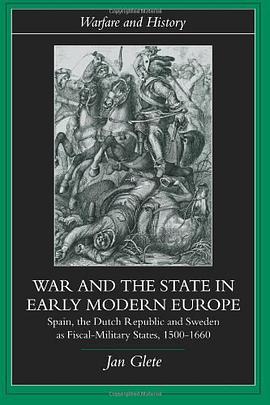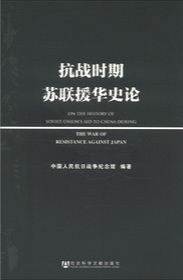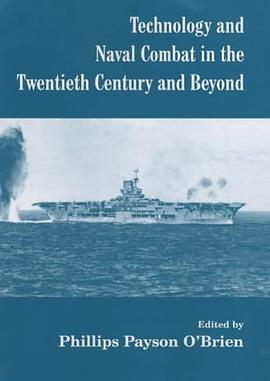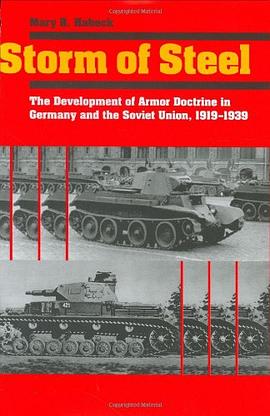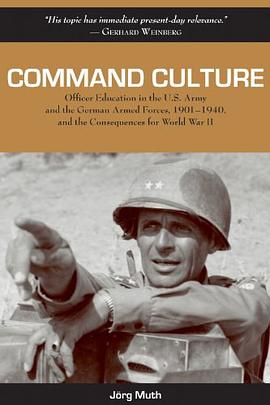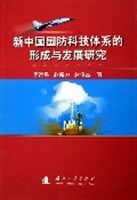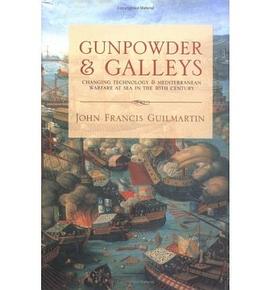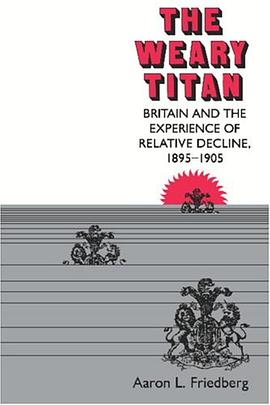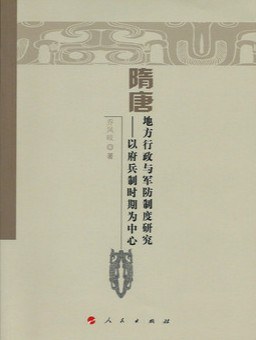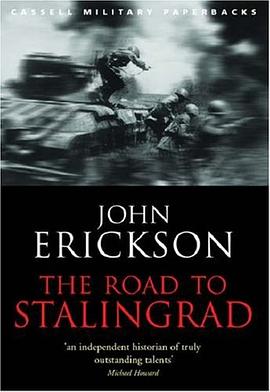

具体描述
The collapse of France before the German onslaught of 1940 was not, as many historians have argued, the result of the Wehrmacht's absolute superiority or the terrible fury of blitzkrieg. Indeed, writes Ernest May in Strange Victory, France had more soldiers in the field than did Germany, their arms were evenly matched in many categories and superior in many others, and the German army was far from fearless. What carried the day for the Nazi invaders was a greater imaginativeness in planning. France and its allies "made no effort to understand how or why German thinking might differ from theirs," did not allow for surprise, believed that their defenses would shield them, and in any event paid little attention to the intelligence that their spies brought them, including irrefutable evidence that German forces were massing along the little-defended border with Lorraine, avoiding the heavily fortified (and, May allows, highly effective) Maginot Line.
The Allies soon overcame their lack of common sense, May continues in this penetrating study, while in the wake of his French victory, Adolf Hitler "became so sure of his own genius that he ceased to test his judgments against those of others, and his generals virtually ceased to challenge him." The outcome is well known. Still, May suggests, Hitler's comeuppance does not diminish the lessons to be learned from the fall of France--notably, that bureaucratic arrogance, a reluctance to risk life, and a reliance on technology over tactics will quickly lose a battle. Students of realpolitik, no less than history buffs, will find much to engage them in May's book. --Gregory McNamee --This text refers to an out of print or unavailable edition of this title.
作者简介
Ernest Richard May (November 19, 1928 – June 1, 2009) was an American historian of international relations whose 14 published books include analyses of American involvement in World War I and the causes of the Fall of France during World War II. His 1997 book The Kennedy Tapes: Inside the White House During the Cuban Missile Crisis became the primary sources of the 2000 film Thirteen Days starring Kevin Costner that viewed the Missile Crisis from the perspective of American political leaders. He served on the 9/11 commission and highlighted the failures of the government intelligence agencies.[1] May taught full time on the faculty of Harvard University for 55 years, until his death. May was also a recipient of the 1988 University of Louisville Grawemeyer Award for Ideas Improving World Order, co-authored with Richard Neustadt.
目录信息
读后感
评分
评分
评分
评分
用户评价
《Strange Victory》这个书名,就像一个精心设计的谜语,一提出就抓住了我的注意力。它不仅仅是一个简单的词组,更像是一个引人入胜的钩子,将读者牢牢地吸入作者构建的世界。我反复咀嚼着“Strange Victory”这四个字,脑海中瞬间涌现出无数的可能性。胜利,固然是人们追求的目标,但“奇怪”二字的加入,却让这一切变得扑朔迷离。这是一种令人费解的胜利吗?还是说,胜利的达成方式本身就充满了不寻常,甚至可以说是扭曲?我开始想象,书中的主角,他(她)的胜利之路,是否充满了非传统的策略,甚至是令人瞠目结舌的手段?或许,他(她)所处的环境本身就极其特殊,迫使他(她)以一种意想不到的方式去实现自己的目标。我又在想,这“奇怪”是否还包含着一种反讽?也许,所谓的胜利,在旁人看来是光荣的,但在主角自己心中,却是一种无法言说的失落,或者是一种必须背负的沉重代价。这种对胜利的另类解读,往往比那些一帆风顺的故事更能打动我,因为它更贴近真实的生活,更展现出人性的复杂与挣扎。我渴望看到一个故事,它能够挑战我对“胜利”的定义,让我重新审视那些在人生道路上所追求的目标。我希望作者能够巧妙地运用这个书名所带来的想象空间,为我呈现一个既有惊喜又引人深思的阅读体验,让我能在合上书本时,依旧沉浸在对“Strange Victory”的思考之中,甚至是对现实世界中的一些“胜利”产生新的观察视角。
评分我拿到《Strange Victory》这本书的时候,首先吸引我的就是它那种言简意赅却又充满暗示性的书名。它不是那种直白的、告诉你故事内容的标题,而是抛出了一个悬念,让你不由自主地去思考,到底什么是“Strange Victory”?这种胜利,是出人意料的、不寻常的,还是带有一点讽刺意味的?这种模糊性,反而激起了我巨大的好奇心,让我想要立刻翻开书页,去探寻其中的奥秘。我猜想,这本书可能不会讲述一个传统意义上的英雄故事,也许主角并不是那种无往不利、一路高歌猛进的完美人物。相反,他(她)的胜利之路可能充满了坎坷、挣扎,甚至是在道德和情感上的巨大考验。我脑海中浮现出一些画面:一个在绝望边缘徘徊的人,为了达成目标,不得不做出一些违背自己意愿的选择;或者是一个身处黑暗势力之中,却最终凭借智慧和勇气,在混乱中撕开一道口子,获得了一丝光明。更甚者,我还在想,这个“Strange Victory”是否意味着,即使最终达到了目的,却也失去了比胜利本身更宝贵的东西,比如纯粹的快乐、内心的平静,或者人与人之间的信任。这种可能性让我感到既兴奋又一丝丝的忧虑,因为我喜欢那种能够触及灵魂、引人深思的故事。我喜欢那些不落俗套、能够挑战读者固有观念的作品,而《Strange Victory》似乎就具备了这样的潜质。我很好奇,作者是如何巧妙地将“奇怪”和“胜利”这两个看似矛盾的元素融合在一起的,它会给我带来怎样的惊喜,又会留下怎样的回味?
评分《Strange Victory》——仅仅是这个书名,就足以在我心中勾勒出无数个引人入胜的场景。它没有直接告诉你故事的走向,而是抛出了一个充满张力的谜题。“Strange”与“Victory”的碰撞,立刻激发了我对未知的好奇心。我猜想,这不会是一部简单的励志故事,主角的成功之路,必然充满了坎坷与变数。也许,他(她)的胜利,是以一种极其不寻常的方式实现的,甚至是颠覆了我们对“胜利”的传统认知。我脑海中浮现出各种可能性:一种是在绝境中,凭借非凡的智慧和勇气,以一种出人意料的方式扭转乾坤;另一种则可能是,胜利的背后,隐藏着不为人知的牺牲和痛苦,让这份“胜利”蒙上了一层悲情的色彩。我甚至在想,这个“奇怪”是否还包含着某种讽刺意味?也许,主角最终获得的,并非是人们通常所理解的那种荣耀和喜悦,而是一种复杂的、难以言说的感受。我喜欢那些能够挑战我思维定势,让我深入思考的作品,而《Strange Victory》显然具备了这样的潜力。我迫不及待地想知道,作者是如何巧妙地将“奇怪”与“胜利”这两个看似矛盾的元素融合在一起的,它将如何塑造我对于“成功”的理解,又会带来怎样的阅读惊喜。我期待着,这本书能够带给我一次深刻的、充满启发的阅读体验,让我能在合上书本后,依旧回味无穷。
评分《Strange Victory》这个书名,就像一个充满魔力的符咒,一瞬间就攫住了我的全部注意力。它不仅仅是一个简单的标签,更像是一扇门,通往一个未知的、充满奇幻色彩的世界。胜利,本应是光明、正面的,但“Strange”的加入,却为这份胜利增添了一层神秘的、甚至略带诡异的色彩。我脑海中立刻涌现出各种画面:也许是一种出人意料的、颠覆常理的胜利;又或许,是主角为了达成目标,付出了常人无法想象的代价,让这份胜利显得格外沉重,甚至带有一丝悲剧的色彩。我喜欢那些不落俗套、能够挑战我固有认知和思维模式的作品,《Strange Victory》显然具备了这样的潜力。我迫不及待地想知道,作者是如何描绘这种“奇怪”的胜利的,它是否与超自然的力量有关,还是仅仅是人性在极端环境下的扭曲表现?它会以何种方式来颠覆我对于“成功”的定义,又将如何引领我进入一个全新的思考维度?我期待着,这本书能够带给我一次既惊心动魄又发人深省的阅读体验,让我不仅仅是跟随故事情节的发展,更能深入到人物的内心世界,去感受他们所经历的挣扎、选择与最终的“Strange Victory”。
评分《Strange Victory》这个书名,真的像一颗投入平静湖面的石子,激起了我心中层层涟漪。我第一时间就被这个名字吸引住了,它不是那种一眼就能看穿的直白,而是带着一种神秘感和诱惑力,让你忍不住想去探究它背后隐藏的故事。胜利,本身就是充满正能量的词汇,但加上了“Strange”这个形容词,整个感觉就变了。它立刻勾起了我的好奇心:这究竟是一种什么样的胜利?是扭曲的、不光彩的,还是某种令人费解的、超乎常规的?我脑海中开始勾勒出各种画面:也许是一位主角,为了实现某个目标,不惜付出一切,甚至是用了一些非常规的手段,最终获得了成功,但这成功却让他(她)付出了沉重的代价,让他(她)无法真正地享受胜利的喜悦;又或者,这个“奇怪”是指胜利的本质,它并不如表面上看起来那样光明正大,背后可能隐藏着黑暗的交易,或者被操纵的阴谋。我喜欢那些能够挑战我固有认知,让我陷入沉思的作品,而《Strange Victory》显然具备了这样的潜力。我迫不及待地想知道,作者是如何巧妙地将“奇怪”和“胜利”这两个元素融合在一起的,它会如何塑造我对于“成功”和“目标”的理解。我期待着,这本书能够带给我一次颠覆性的阅读体验,让我不仅仅是读故事,更是去思考,去感受,去理解那些隐藏在“Strange Victory”背后的深刻含义,甚至是对现实生活中的一些“胜利”产生新的审视角度。
评分拿到《Strange Victory》这本书,书名本身就让我产生了强烈的好奇心。它不像很多书名那样直接揭示内容,而是抛出了一个悬念,一个让人浮想联翩的矛盾体。“Strange Victory”——奇怪的胜利。这究竟是什么样的胜利?是出人意料的、令人难以置信的,还是某种付出巨大代价却又让人心有余悸的成就?我迫不及待地想知道,作者是如何描绘这种“奇怪”的,它体现在故事的哪个层面?是人物的性格,是事件的走向,还是最终的结局?我猜想,这可能不是一个简单的英雄主义故事,主角的成功之路可能充满了曲折和牺牲,甚至可能在道德的边缘游走。或许,这个“奇怪”的胜利,本身就带着一丝悲凉,或者是一种对传统价值观的颠覆。我喜欢那些能够引发思考的作品,而《Strange Victory》这个书名,无疑为我提供了充足的思考空间。它让我联想到许多经典作品中那些在特殊环境下,为了生存或目标而不得不采取非常规手段的角色,他们的胜利往往伴随着内心的煎熬和外界的质疑。我很好奇,作者是如何把握这种“奇怪”的度的,它是否会让我感到不安,又是否会让我对人性有更深的理解?我期待着,这本书能够带给我一次独特的阅读体验,让我走出舒适区,去探索那些隐藏在“胜利”表象之下的复杂情感和深层意义。
评分《Strange Victory》这个书名,就像一把钥匙,悄悄地插入我思维的大门,引发了我强烈的探索欲望。它不是那种让你一眼就能洞悉故事梗概的标题,而是带着一种故作神秘的色彩,让你不由自主地去猜测,去想象。胜利,本应是令人振奋和欣喜的,但“Strange”这个词,却为这一切蒙上了一层模糊的阴影。这是一种怎样的胜利?是出人意料的、令人费解的,还是伴随着某种不为人知的牺牲和代价?我脑海中开始构筑各种可能性:也许,胜利的实现方式充满了非传统的手段,甚至是在道德的灰色地带游走;又或许,主人公的胜利,恰恰是以某种令人心痛的失去为代价,让胜利的光辉显得格外黯淡。我喜欢那些不落俗套、能够打破常规的作品,《Strange Victory》显然具备了这样的特质。它让我联想到那些在极端环境下,为了生存或达成目标而做出惊人选择的人物,他们的成功往往伴随着内心的煎熬和外界的质疑。我非常好奇,作者是如何将“奇怪”与“胜利”这两个看似矛盾的元素巧妙地融合在一起的,它会以何种方式来呈现这种不寻常的成功,又将如何影响我对“胜利”这个词的理解?我期待着,这本书能够带给我一次颠覆性的阅读体验,让我不仅仅是跟随情节的发展,更能深入到人物的内心世界,去感受他们所经历的挣扎与蜕变。
评分这本书的名字《Strange Victory》真的太吊人胃口了。一开始拿到它,我脑子里就充斥着各种各样的画面,胜利,但又是“奇怪”的胜利,这本身就充满了张力。我迫不及待地想知道,究竟是什么样的胜利,它的背后又隐藏着怎样的代价?是出人意料的转折,还是某种扭曲的成功?我总觉得,这个书名本身就是对书中故事的一种隐喻,它预示着读者将要踏上一段充满惊喜和挑战的阅读旅程。也许是主角付出了巨大的牺牲才换来的成就,也许是胜利本身并不如表面看起来那样美好,甚至可能隐藏着某种阴谋或者被操纵的痕迹。我非常期待作者如何在这“奇怪”二字上做文章,它是否会颠覆我们对于“胜利”的固有认知?是否会让我们在读完之后,对这个词汇产生全新的理解?我脑海中浮现出各种可能的故事情节,有的充满英雄主义的光辉,有的则弥漫着黑色幽默的色彩,有的甚至带有哲学性的思考。我甚至开始猜测,书中的“奇怪”是否与超自然现象有关,或者是一种社会性的、心理性的扭曲。这种期待感,就像在黑暗中摸索一件珍贵的宝物,每一次的触碰都充满了未知和惊喜。我一直在回味这个书名,它不仅仅是一个标签,更像是一个引子,一个邀请,邀请我去探索那些隐藏在“胜利”表象之下的复杂人性与命运的纠葛。我相信,这本书绝不会是一部简单的励志故事,它更像是一面棱镜,折射出人性的多重面向,以及在极端情况下,人们会做出怎样的选择。我迫不及待地想知道,作者是如何构建这个“奇怪的胜利”的,它是否会让我陷入沉思,甚至会对自己的某些价值观产生动摇。
评分《Strange Victory》这个名字,在我脑海中留下了深刻的印象。它没有直接点出故事的结局,而是用一种充满暗示和悬念的方式,吊足了我的胃口。胜利,本应是光明和正面的,但“Strange”这个词的加入,立刻为这份胜利蒙上了一层不确定和神秘的色彩。这是一种什么样的胜利?是出人意料的、令人费解的,还是某种带有讽刺意味的,甚至是牺牲了某些更宝贵的东西才换来的?我开始想象,书中的主角,他(她)的成功之路可能并非一帆风顺,甚至可能充满了黑暗、挣扎和道德的考验。也许,他(她)为了达成目标,不得不采取一些非常规的手段,或者是在极端环境下做出了令人难以理解的选择。这种对“胜利”的另类解读,常常比那些平铺直叙的故事更能触动人心,因为它更贴近人性的复杂和现实的残酷。我喜欢那些能够引发思考、挑战我固有观念的作品,《Strange Victory》无疑具备了这样的潜力。我迫不及待地想知道,作者是如何巧妙地构建这个“奇怪的胜利”的,它会如何展现主角的内心世界,以及他(她)在追求胜利的过程中所付出的代价。我期待着,这本书能带给我一次深刻的阅读体验,让我不仅仅是沉浸在故事情节中,更能从中获得一些关于人生、关于选择、关于何为真正的“胜利”的思考。
评分《Strange Victory》——仅仅是这个名字,就已经在我脑海中绘制出了一幅幅充满想象的画面。它不同于那些直白的、预示着美好结局的书名,而是抛出了一个令人玩味的矛盾。“Strange”与“Victory”的结合,本身就充满了张力,让我迫不及待地想要去揭开它的神秘面纱。我脑海中首先浮现的是一种不寻常的胜利,它可能不是那种普世的、被大众所认可的光辉成就,而是伴随着某种牺牲、某种妥协,甚至是在道德的边缘试探而得来的。我猜想,这本书可能不会讲述一个传统意义上的英雄故事,主角可能是一个复杂多面的人物,他(她)的成功之路充满了曲折和挣扎,甚至是在逆境中被迫做出一些令人难以理解的选择。我还在思考,这个“奇怪”是否意味着胜利本身带有某种反讽的意味?也许,最终的胜利,并没有给主角带来真正的快乐,反而是一种沉重的负担,或者是一种无法弥补的失去。这种对“胜利”的另类解读,往往比那些一帆风顺的故事更能触动人心,因为它更接近真实的人生,更能展现出人性的复杂与矛盾。我非常期待作者如何在这“奇怪”二字上做文章,它会以何种方式来呈现这种不寻常的胜利,它又将如何挑战我对于“成功”的固有认知?我希望这本书能够带给我一次深刻的阅读体验,让我不仅仅是沉浸在故事的起伏中,更能从中获得一些关于人性、关于选择、关于人生意义的启示。
评分 评分 评分 评分 评分相关图书
本站所有内容均为互联网搜索引擎提供的公开搜索信息,本站不存储任何数据与内容,任何内容与数据均与本站无关,如有需要请联系相关搜索引擎包括但不限于百度,google,bing,sogou 等
© 2026 onlinetoolsland.com All Rights Reserved. 本本书屋 版权所有



